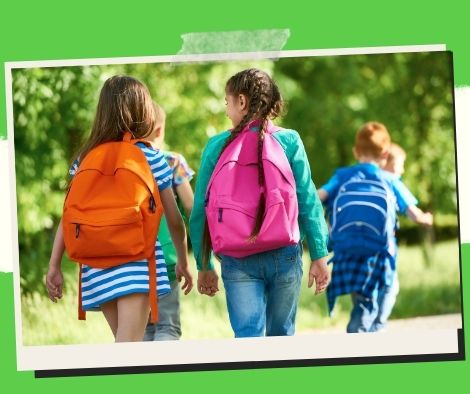
After-school recreational programs
Academic, recreational, and social after-school programs are the three primary categories. When a child’s physical, mental, and educational achievements are compatible, he or she develops in a balanced way. Recreational after-school activities are based on a sport or recreation, as the name implies. Football, swimming, and basketball are some of the most popular physical activities. Gymnastics, trekking, and hiking are just a few of the activities offered by several clubs. In this instance, children are frequently given a brief first-aid course.
After-school recreational programs allow children to let off steam and de-stress. The child’s inherent passion is suppressed by the closed classroom environment and a day filled with textbooks and writing. When he is expected to sit quietly in class and learn, he controls his energy. During these times, physical activity is at an all-time low. Recreational activities help to combat physical inactivity and tiredness. Growing concerns about childhood obesity and diabetes need that youngsters engage in certain hard exercises that allow them to break a sweat.
Recreational programs, unlike educational programs, do not place a strain on the mind. They do, however, help the child learn by making him or her more active. A physically active child is mentally fit and can focus his mind on the task at hand. Recreational programs also instill discipline, teamwork mechanics, and fair play. These are crucial lessons in the development process.
As more nuclear households arise, the child becomes increasingly alone. Many children spend their days bouncing back and forth between their classrooms and their bedrooms, with no meaningful relationships outside of these spaces.
Recreational programs provide numerous opportunities for sociability. Even if his neighbor isn’t the friendliest, there is a location where the child can go and play. The Boy Scout and Girl Scout programs are fantastic after-school activities. Survival workshops and camps have recently been developed to teach youngsters how to face calamities by combining vital survival skills with sports and games.
Recreational programs, like any effective after-school program, are designed to provide children with a safe environment where they can participate in group activities that interest them. This is one of the most effective methods for keeping youngsters out of trouble and off the streets. When enrolling children in recreational classes, however, caution must be exercised. Before you choose the correct curriculum for your child, you must consider the age of the child, his temperament, and his physical ability.
Save/Share this story with QR CODE
Disclaimer
This article is for informational purposes only and does not constitute endorsement of any specific technologies or methodologies and financial advice or endorsement of any specific products or services.
📩 Need to get in touch?
Feel free to Email Us for comments, suggestions, reviews, or anything else.
We appreciate your reading. 😊Simple Ways To Say Thanks & Support Us:
1.) ❤️GIVE A TIP. Send a small donation thru Paypal😊❤️
Your DONATION will be used to fund and maintain NEXTGENDAY.com
Subscribers in the Philippines can make donations to mobile number 0917 906 3081, thru GCash.
3.) 🛒 BUY or SIGN UP to our AFFILIATE PARTNERS.
4.) 👍 Give this news article a THUMBS UP, and Leave a Comment (at Least Five Words).
AFFILIATE PARTNERS

World Class Nutritional Supplements - Buy Highest Quality Products, Purest Most Healthy Ingredients, Direct to your Door! Up to 90% OFF.
Join LiveGood Today - A company created to satisfy the world's most demanding leaders and entrepreneurs, with the best compensation plan today.



 Business Technology, Finance Technology & Information Technology
Business Technology, Finance Technology & Information Technology





